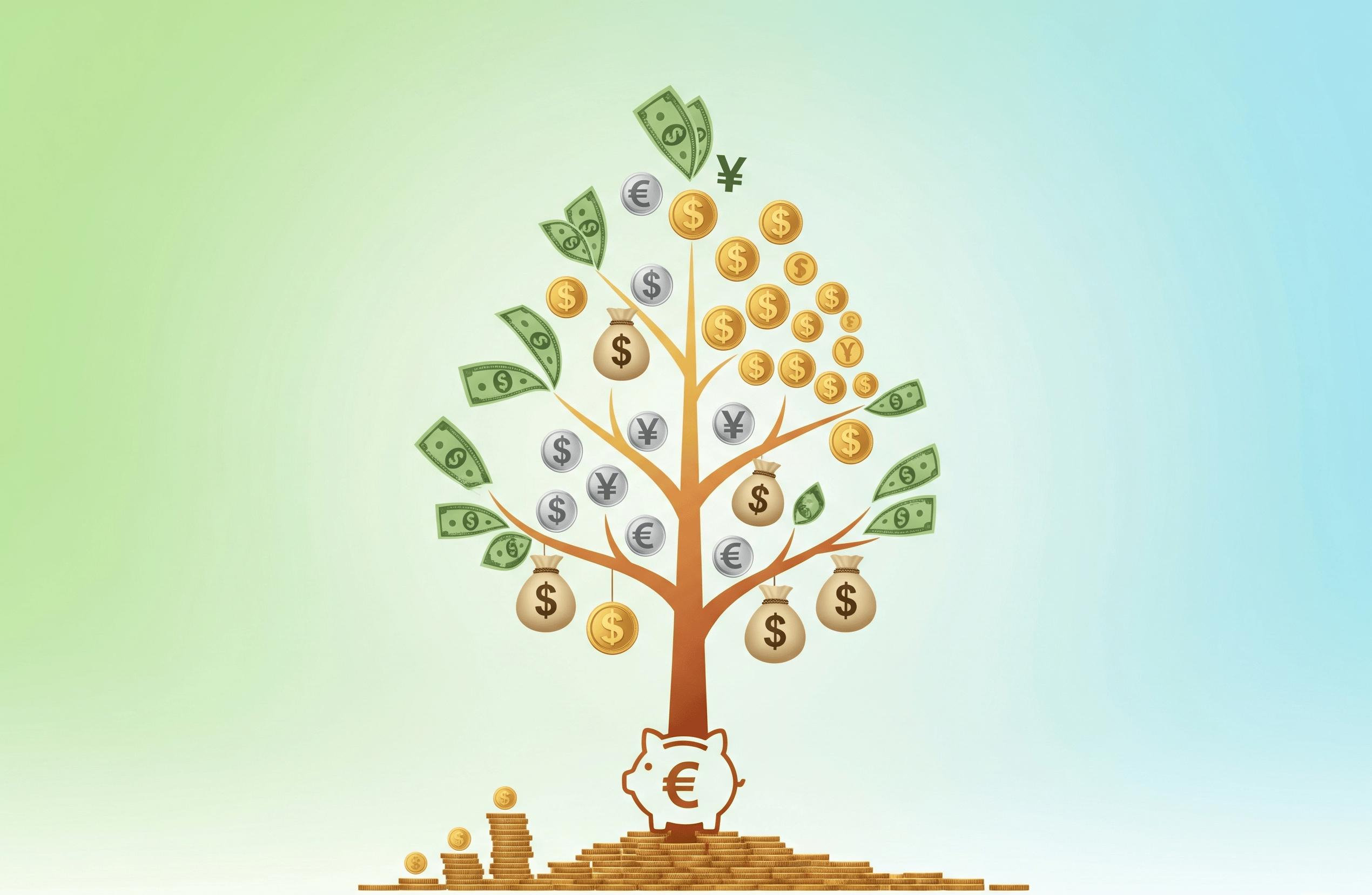Most people have no idea how much they should have saved for retirement. Some try not to think about it. Others compare their 401(k) to a friend's, or read a headline that makes them feel like they're too late to catch up. The truth? Most Americans are falling short of expert benchmarks, but that doesn't mean your story is written. In this article, we'll break down the average retirement savings by age using recent data from Federal Reserve's 2022 Report on Economic Well-Being and other national sources. We'll look at how Gen Z is surprisingly ahead, why Gen X is struggling, and how 401(k) balances are shifting in 2025. You'll also learn how new policy changes like the SECURE 2.0 Act give savers more opportunities, why your credit matters in retirement planning, and how tools like Cheers Credit Builder can support your journey even if you're starting late.
What the Data Tells Us: Average Retirement Savings by Age
According to Fidelity's Retirement Savings Guidelines, Americans fall short of the amount that many financial experts recommend for retirement savings. Here's what’s commonly suggested as a target by age group:
- Age 30: 1x your income
- Age 40: 3x your income
- Age 50: 6x your income
- Age 60: 8x your income
These benchmarks don't account for individual income, debt, or life circumstances, but they offer a general direction for what retirement readiness could look like.
What's Changing in 2025
Several shifts are reshaping how people approach retirement. Gen Z has started saving earlier than past generations, with Fidelity reporting a total savings rate of 11.2% in early 2025 (QUARTZ) and nearly one in five increasing their contributions during the quarter. Gen X, is saving at a higher rate—around 15.4% of their income (QUARTZ), but many still feel squeezed. They’re often balancing the costs of supporting aging parents while raising children, which leaves less room to build the kind of retirement cushion they’d like.
Market volatility has added to the pressure. According to Fidelity’s Q1 2025 analysis reported by Investopedia, the average 401(k) balance dropped about 3% from the prior quarter to $127,100 (Investopedia). IRAs and 403(b) accounts also declined during the same period. Even so, savers didn’t pull back—many boosted contributions or shifted to more conservative investments. At the same time, provisions in the SECURE 2.0 Act have expanded opportunities for late starters. Those over 50 can make higher catch-up contributions, and more employers are introducing Roth options and auto-enrollment to help boost savings rates.
Meanwhile, movements like FIRE (Financial Independence, Retire Early) are still gaining traction. Those aiming to step away from work before 50 are adopting stricter withdrawal strategies to stretch their savings across longer retirements.
The Aspiration: A Retirement You Don't Have to Worry About
Retirement doesn't have to mean luxury - it needs to mean freedom. Freedom to stop working when you choose. Freedom to help your kids if they need it. Freedom to travel, stay active, and enjoy your time without constantly worrying about bills.
That kind of future starts with consistent action. And it doesn't matter if you're starting at 25 or 55-what matters is that you begin.
Where You Might Be Right Now
If you're in your 20s or 30s, saving anything can feel tough. Between rent, loans, and groceries, retirement may not be your top priority, but starting small now makes a massive difference over time. If you're in your 40s or 50s and you've barely saved, you're not alone. Millions of people in this age range are behind on retirement goals. However, tools like catch-up contributions and employer matching still provide you with time to close the gap. And if you're already in your 60s, thoughtful withdrawal planning and maximizing Social Security can stretch your savings further.
How to Take Control of Your Future-Even If You're Starting Late
You don't need to hit every benchmark to feel in control. Here's what matters:
- Set up automatic savings: even $50/month makes a difference when compounded over the years.
- Take advantage of your employer's match: if you have a 401(k). That's free money you shouldn't pass up.
- Use catch-up contributions: once you're 50 or older. SECURE 2.0 expanded those limits in 2025.
- Explore Roth IRAs and HSAs: especially if you're younger and still growing your income.
- Stick to a sustainable withdrawal rate: according to Morningstar, commentators such as economist Karsten Jeske, now recommend a withdrawal rate of 3.25% to 3.5% annually to avoid running out of money too soon.
No matter your income level, there are steps you can take to improve your retirement outlook, starting with the basics.

This content is for informational purposes only and does not constitute financial advice. Please consult a licensed financial advisor or tax professional before making any financial decisions.
(The opinions expressed in this article are the author’s own and do not reflect the view of Sunrise Banks⁴.)
Where Cheers Fits Into the Picture
Credit might not be the first thing you think of when it comes to retirement, but it plays a significant role. A strong credit profile can lower your interest rates, improve loan terms, and give you access to better financial tools as you age. If you're behind on retirement savings, reducing the cost of borrowing and avoiding unnecessary fees can be a significant help.
That's where Cheers Credit Builder steps in.
Cheers helps you build credit while saving. There's no credit check, no setup fee, and no membership cost¹ - just a low interest rate. Each month, your payment activities² gets reported to all three major credit bureaus— Equifax, Experian, and TransUnion. The money you pay is securely held in a Certificate of Deposit (CD), and when the term ends, you receive your funds back, minus the interest. Cheers uses accelerated reporting³, so your account and first payment are reported to all three credit bureaus within 15 days of account opening.
It's one of the easy tools designed to build credit and savings simultaneously. Whether you're starting your credit journey or trying to clean up your credit later in life, Cheers gives you a smart and simple way to move forward.
You're Not Too Late-You're Right On Time
The average retirement savings by age is helpful for perspective, but it's not the final word on your financial future. You don't need to hit every target perfectly. You need to move forward with intention.
Whether you're just starting to save, catching up after a few lost years, or closing in on retirement age, there's still time to make progress. Set your pace, stay consistent, and choose tools that help you move forward. And if you want to improve your credit while saving for tomorrow, Cheers is here to help.
References:
- Federal Reserve – https://www.federalreserve.gov/publications/files/2022-report-economic-well-being-us-households-202305.pdf
- Fidelity – https://www.fidelity.com/viewpoints/retirement/how-much-do-i-need-to-retire
- QUARTZ – https://qz.com/fidelity-report-401-k-balance-investments-q1-1851783626
- Investopedia – https://www.investopedia.com/market-volatility-didn-t-slow-retirement-savers-in-the-first-quarter-11750544
- Fidelity – https://www.fidelity.com/about-fidelity/Q1-2025-retirement-analysis
- SECURE 2.0 Act – https://www.empower.com/the-currency/life/what-is-secure-act-2
- Financial Independence, Retire Early (FIRE) – https://www.investopedia.com/terms/f/financial-independence-retire-early-fire.asp
- Morningstar – https://www.morningstar.com/retirement/karsten-jeske-cracking-code-retirement-spending-rates
- Equifax – https://www.equifax.com/personal/
- Experian – https://www.experian.com/
- TransUnion – https://www.transunion.com/
1 No Setup fee, and No Membership Cost:
There are no application fees, maintenance fees, or early cancellation penalties.
² Payment Activity:
All payment activity is reported to the credit bureaus. On-time payments may help build your credit, while late or missed payments may negatively impact it. Results are not guaranteed and depend on your individual financial behavior and credit profile.
³ Accelerated Reporting:
Accelerated reporting applies to the opening of your account, plus the first payment. Credit bureau reporting occurs monthly thereafter
⁴Sunrise Banks:
Cheers is a financial technology company and not a bank. Banking services are provided by Sunrise Banks N.A. Your funds are FDIC insured up to $250,000 through Sunrise Banks, N.A., Member FDIC. Results are not guaranteed. Improvement in your credit score is dependent on your specific situation and financial behavior. Failure to make monthly minimum payments by the payment due date each month may result in delinquent payment reporting to credit bureaus, which may negatively impact your credit score. This product will not remove negative credit history from your credit report. All loans are subject to approval. Must be at least 18 years old, have a valid U.S. bank account, and a Social Security Number.









